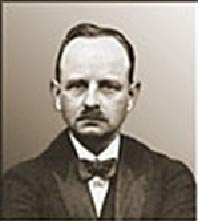 Otto Welp played a significant role in the development of the Reform Movement. He was one of the first leaders to give a clear testimony that we could not take part in politics, because the teachings of Christ forbid this. The believers were to be instructed along this line. As a result of his influence the leading brethren of the Reform Movement gave the same testimony in word and in writing.
Otto Welp played a significant role in the development of the Reform Movement. He was one of the first leaders to give a clear testimony that we could not take part in politics, because the teachings of Christ forbid this. The believers were to be instructed along this line. As a result of his influence the leading brethren of the Reform Movement gave the same testimony in word and in writing.
More specifically, he was one of the first leaders to give a clear testimony on not taking part in direct or indirect military service; members were not to take part in the war as combatants or non-combatants.
They were not to take part in the war as non-combatants, because everything a non-combatant does is in support of the war effort and an effort to enfurther the war effort. Even as a medic their goal is to get the soldiers on their side stitched up as quickly as possible and back onto the battlefield, winning battles. And if they saw a soldier on the other side they would certainly not involve themselves in their care! So this proves that the ultimate goal is not to be humane but to win battles.
We know that Otto Welp was the first General Conference president of Seventh-day Adventist Church Reform Movement; he came into office in 1925. He had a great desire to take an active part in the Reform Movement. In the First World War he had suffered four years of persecution for his faith. When you make sacrifices for the truth then the truth means so much more to you; because you understand the price that had to be paid to live up to that truth. That is why perhaps we do not appreciate the present truth we have today as we should because we have not made many sacrifices for it.
In 1922, Otto Welp played a significant role in the Seventh Day Adventist General Conference which was occurred in San Francisco, California. He wrote three appeals to the SDA General Conference, seeking to present their case during the session! The first appeal was handed by Brother Welp to Elder Daniels on May 11, 1922. The second appeal was mailed to every members of the General Conference Committee, together with a copy of the first appeal. This second appeal was sent on May 18. The third was handed to Elder Daniels on May 22nd.
These three appeals were completely ignored by the General Conference of the Seventh-day Adventist church, and there was no answer given to them at all!
Spanknobel and Otto Welp showed their earnestness in obtaining a hearing by going to the SDA General Conference and waiting in the auditorium for two hours until Elder Daniells came by where they were. They stopped him and asked him if they would be given a hearing to present the pertinent questions that have separated and divided the people of the Lord.
A.G. Daniells responded, “We could never permit these questions to come up before the whole delegation of the General Conference; that would cause the greatest disturbance we ever had.” May 24, 1922.
Spanknobel and Welp realized that, to avoid having the European apostasy exposed to the whole delegation, the military issue and the schism of 1914 was not put on the agenda. The two men decided on another course of action. They realized that this was probably going to be the last official attempt at reconciliation and no other attempts would be made.
The course of action they decided upon was that they must appeal to the people in their respective churches! A leaflet was printed and given to all the people and delegates before leaving the General Conference Auditorium, entitled, “Jesus Weeps Over His People.”
This course of action taken by Welp and Spanknobel showed their willingness and earnest desire to re-unite and to prove that they were not just some rebels who could not wait to form their own organization.
The handing out of the pamphlet was necessary, because they understood that if they did not hand out this pamphlet the blood of the sincere Adventist would be on their hands. We must call God’s people to “Come out of her My people”.
After the council in Freidensau and the hearing in San Fransisco, there arose many Adventists who were fully convinced that the Seventh-day Adventist Church had taken the wrong stand in regard to military service. Therefore, the honest in heart joined with the separated and faithful people of God.
We must separate and come out from Babylon in order not to partake of her sins.
Many people say, “it’s alright because I don’t truly believe the doctrines of this church I attend;” however, just by being present you will be guilty of the sins occurring in that church, and if you spend long enough time there, the spiritual apathy will take its toll and have an influence upon you.
We can learn several lessons from the life of Otto Welp: Faithfulness, perseverance, making every effort to build bridges. Doing all we can to reach souls even if we know that most will reject it. Each soul is so precious that Jesus died for that soul; so, even if we go through hundreds of rejections to reach one sincere individual, it is worth it.
Richard Eaton
